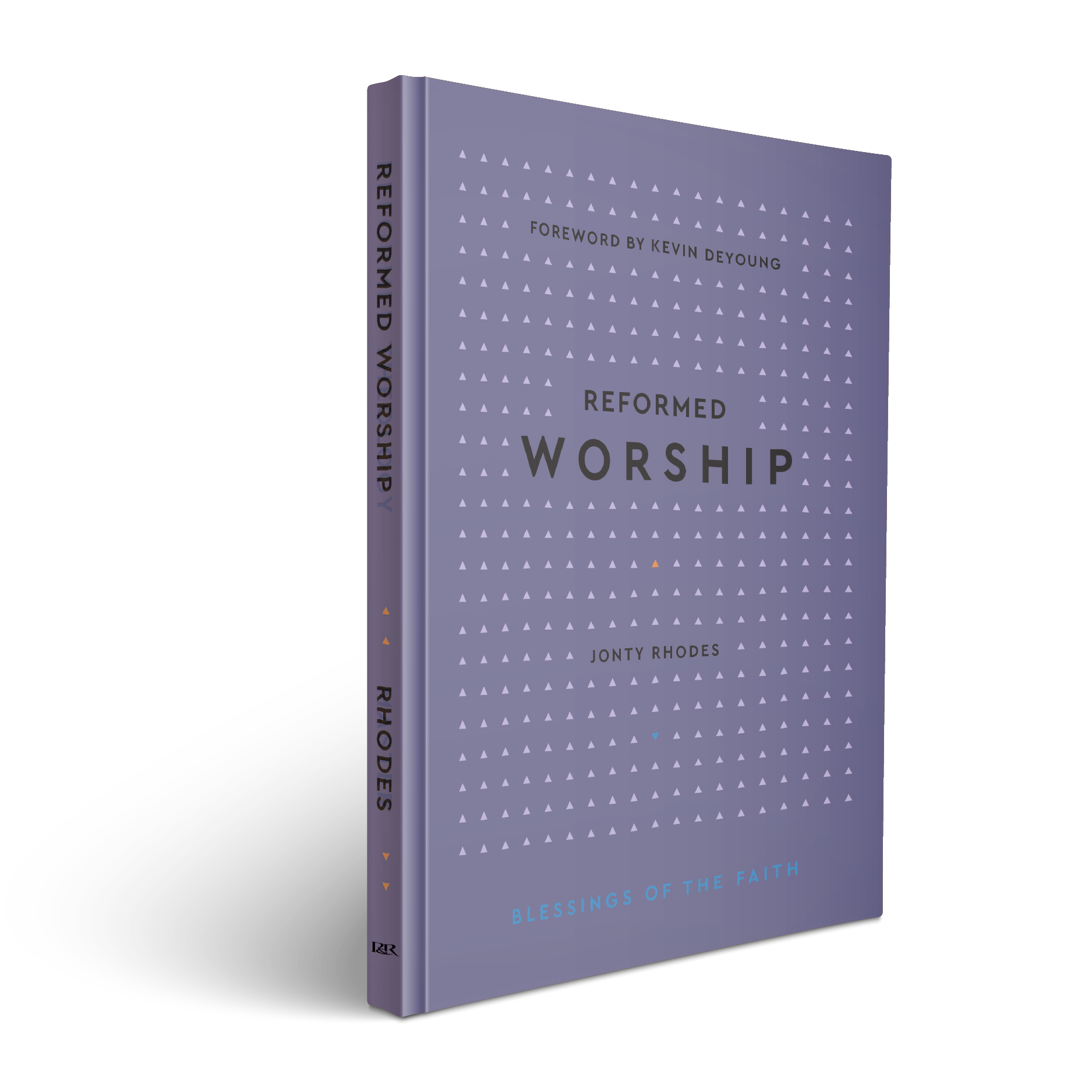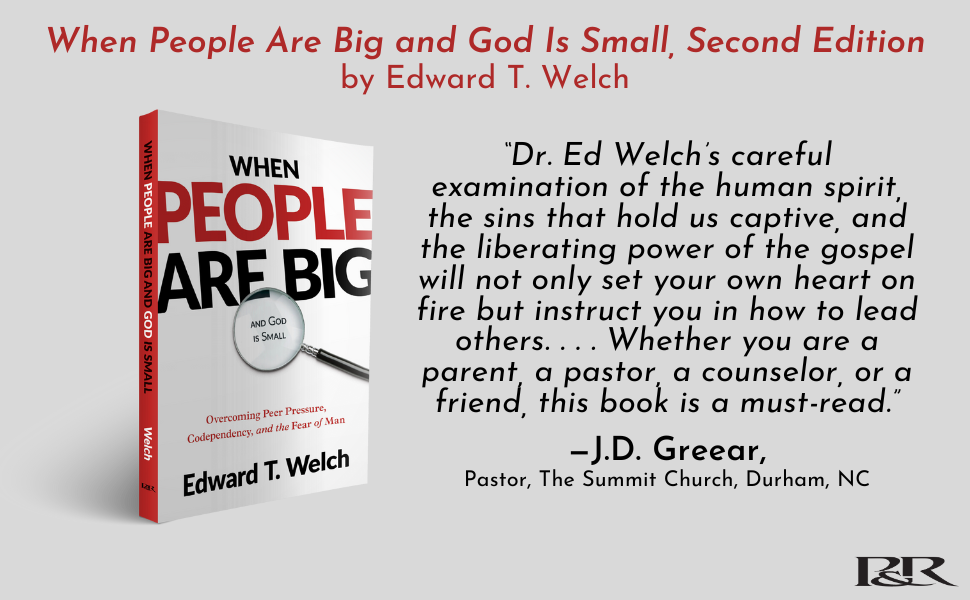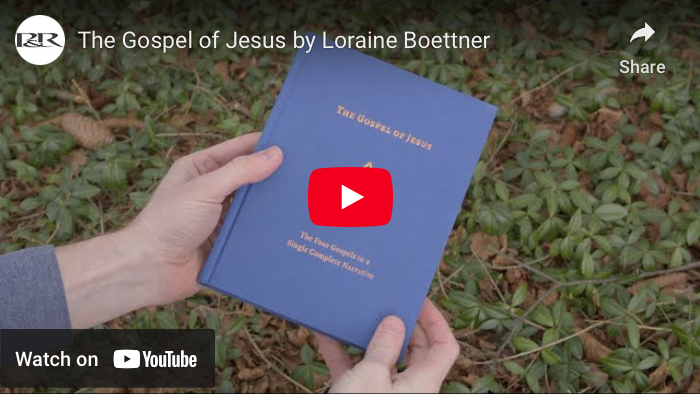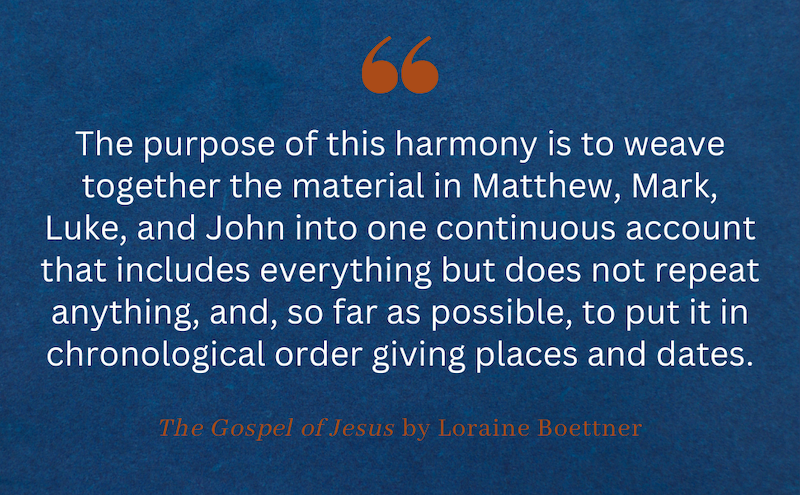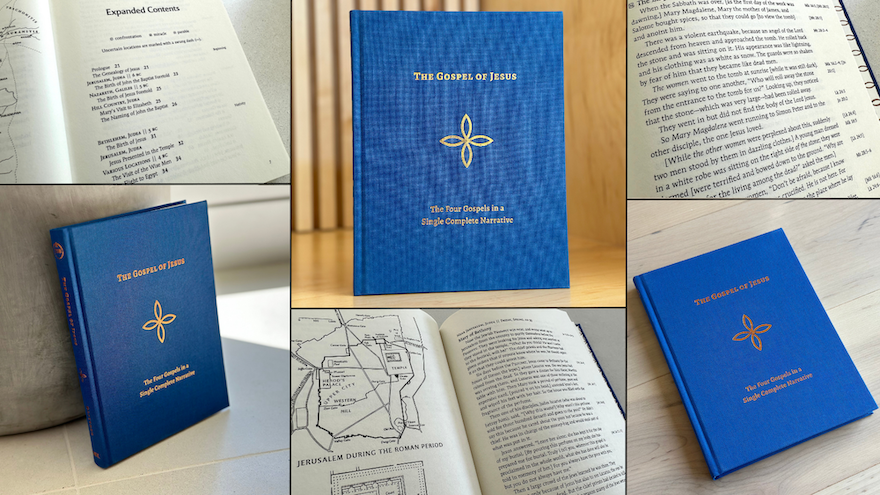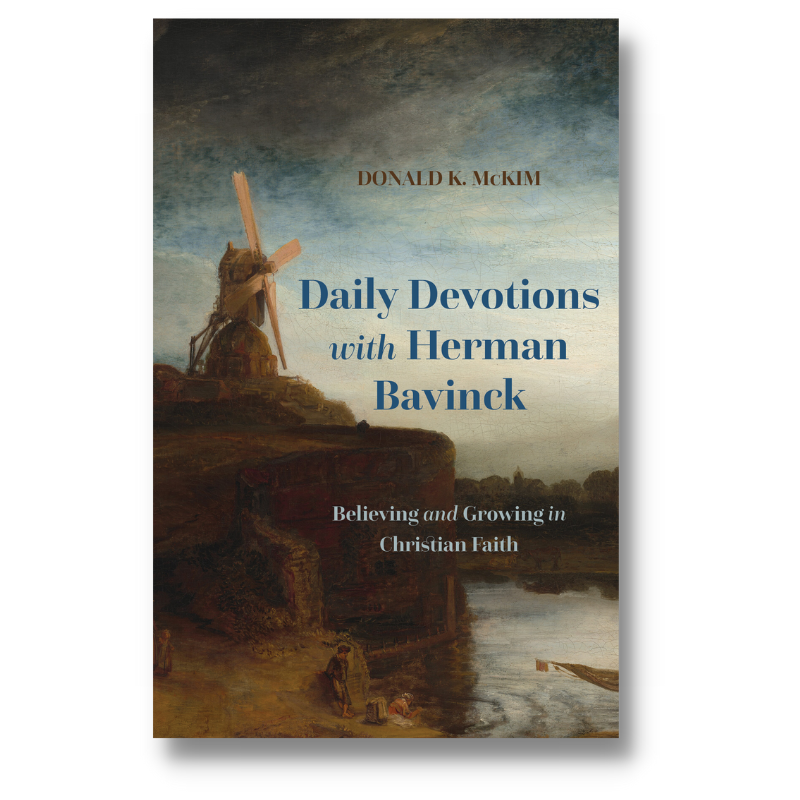The following is taken from an interview over Zoom with Jonty Rhodes and Joy Woo. Jonty is the author of Reformed Worship, our upcoming release in the Blessings of the Faith Series. He previously wrote Covenants Made Simple: Understanding God’s Unfolding Promises to His People.
1) Tell us a little bit about yourself—your current work, your projects, your family, and your hobbies.
I’m married to Georgina and we’ve got five kids now, from nine down to eighteen months. Both my wife and I came to faith when going to classic English boarding schools. For me it was a Christian member of staff who invited me along to summer camps and ran a little Bible study at the school.
Long story short, I am now a Presbyterian minister and part of a little denomination—the International Presbyterian Church (IPC). The IPC was founded by Francis Schaeffer, initially in the Alps, but with two congregations planted in England in the 1960s. I used to say I was 10 percent of English Presbyterian ministers working over here. It’s marginally better than that now, but there are still very few of us! Presbyterianism in England has struggled to get much of a foothold in the country more or less since the days of the Westminster Assembly. But encouragingly we are seeing some growth recently.
As for ministry, I was converted in a different tradition, but slowly read my way to being a Presbyterian. In 2010 eight of us started a little church in Derby, a medium-sized city in the middle of England. When we brought that church into the IPC, I think it was the fourth English church in the denomination. I’m now chair of the church-planting committee for the denomination and have been encouraged to see some fledgling growth since those days: I think we’re currently seventeen congregations, most planted in the last decade. My current job is church planting in Leeds, which is the third biggest city in England. We planted here in 2017, a group of about fifteen of us to begin with, but it’s grown over the last five years to about 120 of us now.
Within IPC it feels like we are trying to plant not just churches but also a whole denomination—a whole way of doing church that is new to England, or at least hasn’t been seen for a very long time. That’s why we’re grateful for American resources and support because, although the Westminster Confession was written here, we just haven’t seen that kind of ministry in action in England for a very, very long time—certainly not in my lifetime. But the IPC and a sister denomination the Evangelical Presbyterian Church in England and Wales (EPCEW) are both growing, and Presbyterianism is becoming a viable option again in England.
As to hobbies, I used to enjoy cricket, but I’ve got five young kids, so I don’t have hobbies anymore!
2) What need have you personally seen in the church for a book on Reformed worship?
In my context, obviously there aren’t loads of people who come from Reformed backgrounds. So we have a lot of folk join our church who are evangelical, and therefore know that worship is important, know the Bible tells them to worship, but may not have a particularly thought-through understanding of what that means. Certainly, they are confused or surprised by how we as a Reformed church worship on a Sunday.
Part of the hope for the book is to introduce people who are new to a Reformed setting to why we worship how we do, as well as to explain how and what we do in worship. The book talks about the structure of the service, the pattern of the service, and the various elements, but I hope it also helps people understand what’s going on behind that—why we’re making those choices. They’re not just my personal preferences as a pastor, they’re not driven primarily by what’s popular, or even, bluntly, what will get the most people through the door. Rather, we hope our decisions are being driven primarily by what God has to say about worship in his Word.
What I’ve found—and this was the case for me too, until I started discovering the Presbyterian and Reformed world—is that many people know that God cares that he’s worshipped, but they don’t tend to think that God really cares how he’s worshipped. That was the primary driving force for the book. Linked to that is the centrality of the blessings that are to be found in worshipping God in the way that he does lay out in his Word. To paraphrase the catechism, it’s not just a duty but also a delight. There’s real richness and blessings to be found in our understanding of worship.
I think many people come to church thinking of worship as primarily a thing they do: “We need to come and worship; it’s about me giving to God.” They are therefore surprised—and pleased, hopefully—to understand the worship service as an event where God is acting, God is blessing and feeding his people. God is the gracious first actor in the service, not us. So who God is affects our worship.
I hope those things come across in the book; they’re some of my motivation for writing it—and teaching on it. It began as a Sunday school series. Hopefully it will be useful elsewhere, but we’ll wait and see!
3) What have you learned about the nature of God-honoring worship throughout the writing process?
If I had to pick one thing, what struck me was the grace of God in worship. At one point in the book, I talk about the idea that God is self-sufficient, and therefore, ultimately, he doesn’t need our worship. He’s not like the pagan gods who need sacrifices to keep them fueled up or their tribe strong. He’s not a God who needs us: he is self-sufficient, he has all the joy he needs in himself, and he’s not dependent on us in any way. And once you get that in your head, it just transforms how you understand worship. Worship is not about me fulfilling God’s needs, but rather it’s about a God who is so gracious and overflowing in love, mercy, and generosity that he allows us to come and worship him. When you see that worship and coming to God, meeting with him, is not simply a duty and it’s not for his benefit in any way, then it must be a blessing! I think that really transforms how you approach worship. The whole series is called the Blessings of the Faith, and when you understand that God is not gaining by your worship of him, you see that the only people gaining are us!
All these things again demonstrate the grace of God—the love of God—for his people. It’s not so much that we have to worship (though we do) as that we get to worship. In reality, because of our weakness and because of our sin, we don’t always bounce out of bed on a Sunday morning. Even pastors, I’m afraid, aren’t always full of the joy of the Lord and just desperate to get to church. It could be life circumstances—you’ve had a horrendous tragedy that week—it could just be the grind, it could be anything. There are all sorts of reasons why we don’t spring into action on a Sunday morning as we should. But if I’ve got a settled conviction that it is both good and a blessing to come before the Lord, then it’s going to get me there even when my emotions don’t.
4) If you were challenged to summarize the message of this book in one sentence, what would you say?
I’d say that the book is about . . . the blessings of worshipping God, as he has revealed himself to be in Scripture, in the manner that he’s laid out for us in Scripture.
I found it hard to find introductory books on worship that didn’t presume a basically Reformed background . . . but in the editing process, Amanda Martin shared that this was the “friendliest and cheerfulest” book that she had read on the regulative principle. That encouraged me, because I think sometimes books on worship can become excessively combative—dare I say it, perhaps especially those from a Reformed perspective. But actually if you get a really biblical, Reformed view of who God is, then it should make you gracious, friendly, and cheerful! So I’m glad it came across that way and not as a kind of “worship wars round 58,” or whatever we’re on now.
I also hope it’s setting out an explicitly biblical case for why we worship in this way. I wonder if the English context helps here, too, because (I guess like many Reformed churches in the USA) we just can’t get away with saying, “Well, the Westminster Confession says this, so this must be the right way to do it . . .” Almost no one new to us cares what the Westminster Confession says—or even knows what it is! So we’re constantly having to go back to first principles and show why the Confession says what it does. I hope the book does that in a cheerful, charitable way!
Interview has been edited for length and clarity.

